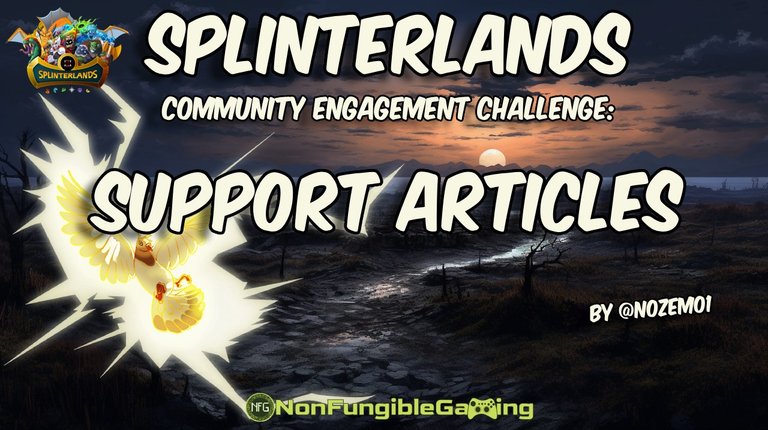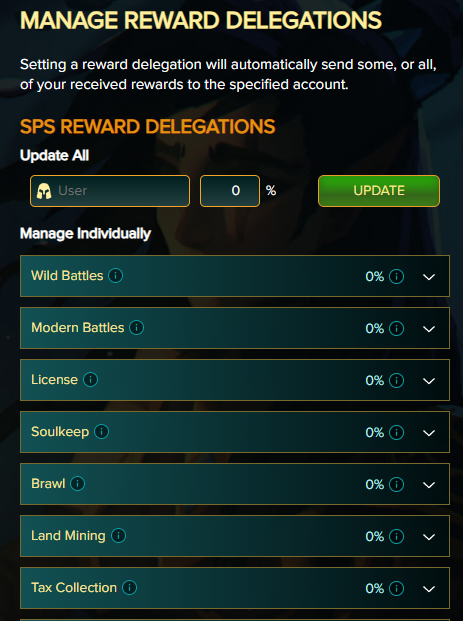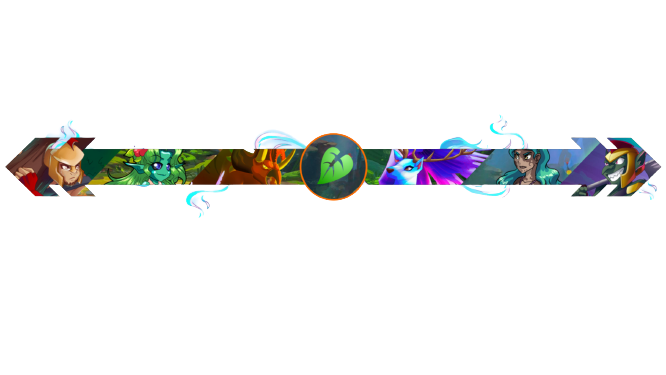Splinterlands - Scholar accounts: The do's and don'ts

Hey everyone, it's time for the second Splinterlands Challenge this week, and this weeks Community Engagement Challenge is about making a support article about scholar accounts, whoops! I think after over three years I can say I'm an experienced player but this is one of the few topic I don't have any personal experience with because I like to own my assets and play them manually, I don't even rent cards, well, except for a couple of cards on my alt account maybe. 😁
So, for this one, and I don't do this often, I had a little AI help supervised by myself, and actually it's about as much work (and less fun) to write an article from scratch! 😅
To find out how you can participate in the challenge yourself, check out the splinterlands post here.
So, without further ado, let's get on with it, I made an overview with the into about what a scholar is, as well as the do's and don'ts for both parties.

1. What is a Scholar Account in Splinterlands?
Scholar accounts allow players who own significant assets in Splinterlands but don’t have time to play extensively to assign a "scholar" to manage and play on their account or one of multiple alt accounts.
The scholar earns a share of in-game rewards for their efforts, while the player benefits from rewards they might not have otherwise earned. This can be mutually beneficial, with scholars building their skills and income while players get value from their assets without the need of investing in the game with personal funds.
Scholar accounts are particularly useful for larger asset holders who want to make the most of their holdings without needing to dedicate much time. This approach is also widely used in guilds, where players pool resources to support both individual player growth and team success.

2. Setting Up a Scholar Account
For Managers:
Account Security: Use the posting key feature in Splinterlands to give scholars access without full control, this way they can play the account but can't do other actions like transfer, sell or burn cards or other assets.
Earnings Split: A fair earnings split is crucial. Common splits range from 50-50 to 70-30 (in favor of the player or scholar), depending on the amount and quality of assets provided and the scholar’s skill level. A clear, documented agreement helps avoid future misunderstandings.
Asset Allocation: Select cards suited to the scholar’s skill level and the leagues or tournaments they’ll compete in. For example, beginners might focus on Bronze or Silver League, while experienced players can handle Gold or higher, although the leagues have been more or less eliminated, giving a starting player access to a max level account can be overwhelming for them.
The cards should have synergies to increase chances of winning battles.
Splinterlands has a great way to automatically share rewards on this page, this way you can clearly set how all rewards are shared without the need of monitoring the earnings manually and share them every season end or once a month.

For Scholars:
Gameplay Familiarity: It’s important that the scholar knows card stats, battle tactics, and Splinterlands mechanics to make the most of available assets. Players might provide resources or guides to help scholars improve their skills, and maybe better if the scholar is a starting player: personal guidance.
Earnings Understanding: Scholars should be clear on how and when earnings are split, which typically happens at the end of a season or periodically depending on the terms. It helps if scholars track and share their earnings and performance with the player regularly.

3. Regular Management & Expectations
Communication: Consistent updates help both parties stay on the same page. Scholars can share their achievements, and players can provide constructive feedback or offer tips for improvement.
Performance Goals:
4. Do's and Don'ts for Both Parties
Do's for both:
Set Clear Expectations: Define clear rules for what is expected from both the manager and the scholar. Specify responsibilities, play expectations, revenue share, and account boundaries. This can avoid misunderstandings and maintain harmony in the partnership.
Do’s for managers:
Use Safe Delegation Methods: To protect assets, use Splinterlands’ native delegation tools or secure wallet access to limit account permissions: ONLY share the posting key with the player.
Transparency: Be open and honest about potential changes, like reward split adjustments or adding new cards.
Provide Training and Support: Equip scholars with game guides, videos, and battle strategies to maximize their potential. Offer ongoing support to answer questions or clarify in-game mechanics. This shows you’re invested in their success and helps them perform better.
Reward Performance: Create a rewarding structure that incentivizes high performance, such as bonuses for reaching certain rank thresholds. It motivates scholars to play their best and feel valued.
Don’t Ignore the Need for Growth: Scholar accounts often start with limited resources, but don’t assume they’ll thrive without upgrades. Reinvest in these accounts periodically to keep their performance competitive.
Do’s for Scholars:
Play on a regular base, to ensure maximum earnings for both parties as well as to sharpen your skills.
Communicate Needs: If you encounter difficulties in gameplay or see opportunities for improvement, keep an open line of communication with the manager.
Don'ts for Both:
No secret single sided changes: Avoid changing reward splits, card access, or terms without discussing it with the other party.
Don'ts for the manager:
Never, EVER share more than your posting key!
Don’t Micromanage: Trust your scholars with some autonomy. Over-managing every game decision or move can lead to frustration and reduce their enjoyment. Aim to support, not control, their gameplay experience.
Avoid Fixed Payments: Instead of a fixed pay, opt for a performance-based payout system to keep scholars motivated. Fixed payments can lead to lower engagement, especially if scholars feel their work has no direct impact on their rewards.

5. Ending the Scholar Relationship
Exit Plan: Set clear conditions for ending the partnership. This might include a specific timeline, a performance review, or agreed-upon flexibility if circumstances change.
Well, that's it for this week! Did you already read my post from last Thursday about planning my splinterlands future?
it's about my plans regarding the arrival of Conclave Arcana and the rotation out of modern for Chaos Legion which will have a significant impact on many players, as well as the game I think.
Thursday is my day off, and I generally use it to make splinterlands blogs, but the launch days have shifted, so now I was a bit late with my first post and after I played both of my account's energy to 0, they're back at around 35 again now so there's work to do!

Thank you for reading!!!
If you haven't made an account already, please consider using my referral link to sign up, I'll happily send the amount I get for your signup back to you in DEC or SPS to help you start.
Have a great day!


oh wow so you didn't start this game as a scholar? i was a scholar before i started having my own account
No, is that the normal way for most people? I started with a level 1 deck when untamed was just about to sell out, I didn't knew anything about the sets and thought it wouldn't be important for me to start leveling my cards 😅
I'm not sure haha. I was a bit skeptical to spend money to play the game so scholarship was a way to try out the game
View more
Thanks for sharing! - @yonilkar
